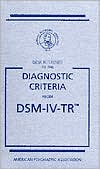Introduction to Behavioral Research Methods
Search in google:
Taking into consideration the four basic approaches to behavioral research (descriptive research, correlational research, experimental research, and quasi-experimental research), Introduction to Behavioral Research Methods shows students how to conceptualize questions, measure variables, design studies, and analyze data. Booknews A textbook for the research methods course that integrates the various topics covered by using the concept of variability as a unifying theme. Among the changes in this revised edition are the addition of a second chapter that focuses on measurement and a new chapter on advanced correlational research strategies. Annotation c. Book News, Inc., Portland, OR (booknews.com)
All chapters begin with a chapter outline and conclude with “Summary,” “Key Terms,” “Questions for Review,” and “Questions for Discussion.”Preface.1. Research in the Behavioral Sciences.The Beginnings of Behavioral Research.Goals of Behavioral Research.The Value of Research to the Student.The Scientific Approach.Behavioral Science and Common Sense.Philosophy of Science.The Role of Theory in Science.Research Hypotheses.A Priori Predictions and Post Hoc Explanations.Conceptual and Operational Definitions.Proof and Disproof in Science.Strategies of Behavioral Research.Domains of Behavioral Science.A Preview.2. Behavioral Variability and Research.Variability and the Research Process.Variance: An Index of Variability.Systematic and Error Variance.Assessing the Strength of Relationships.Meta-Analysis: Systematic Variance Across Studies.3. The Measurement of Behavior.Types of Measures.Scales of Measurement.Estimating the Reliability of a Measure.Estimating the Validity of a Measure.Fairness and Bias in Measurement.4. Approaches to Psychological Measurement.Observational Methods.Physiological Measures.Self-Report: Questionnaires and Interviews.Archival Data.Content Analysis.5. Descriptive Research.Types of Descriptive Research.Sampling.Describing and Presenting Data.6. Correlational Research.The Correlation Coefficient.A Graphic Representation of Correlations.The Coefficient of Determination.Statistical Significance of r.Factors That Distort Correlation Coefficients.Correlation and Causality.Partial Correlation.Other Correlation Coefficients.7. Advanced Correlational Strategies.Predicting Behavior: Regression Strategies.Assessing Directionality: Cross-Lagged and Structural Equations Analysis.Uncovering Underlying Dimensions: Factor Analysis.8. Basic Issues in Experimental Research.Manipulating the Independent Variable.Assignment of Participants to Conditions.Experimental Control.Eliminating Confounds.Error Variance.Experimental Control and Generalizability: The Experimenter's Dilemma.9. Experimental Design.One-Way Designs.Factorial Designs.Main Effects and Interactions.Combining Independent and Subject Variables.10. Analyzing Experimental Data.An Intuitive Approach to Analysis.Hypothesis Testing.Analysis of Two-Group Experiments: The t-Test.Analyses of Matched-Subjects and Within-Subjects Designs.11. Analyzing Complex Designs.The Problem: Multiple Tests Inflate Type I Error.The Rationale behind ANOVA.How ANOVA Works.Follow-Up Tests.Between-Subjects and Within-Subjects ANOVAs.Multivariate Analysis of Variance.Experimental and Nonexperimental Uses of Inferential Statistics.Computer Analyses.12. Quasi-Experimental Designs.Pretest-Posttest Designs.Time Series Designs.Longitudinal Designs.Program Evaluation.Evaluating Quasi-Experimental Designs.13. Single-Case Research.Single-Case Experimental Designs.Case Study Research.14. Ethical Issues in Behavioral Research.Approaches to Ethical Decisions.Basic Ethical Guidelines.The Principle of Informed Consent.Invasion of Privacy.Coercion to Participate.Physical and Mental Stress.Deception in Research.Confidentiality in Research.Common Courtesy.Ethical Principles in Research with Animals.Scientific Misconduct.A Final Note.15. Scientific Writing.How Scientific Findings Are Disseminated.Elements of Good Scientific Writing.Avoiding Biased Language.Parts of a Manuscript.Citing and Referencing Previous Research.Other Aspects of APA Style.Sample Manuscript.Glossary.Appendix A: Statistical Tables.Appendix B: Computational Formulas for ANOVA.References.Index.








